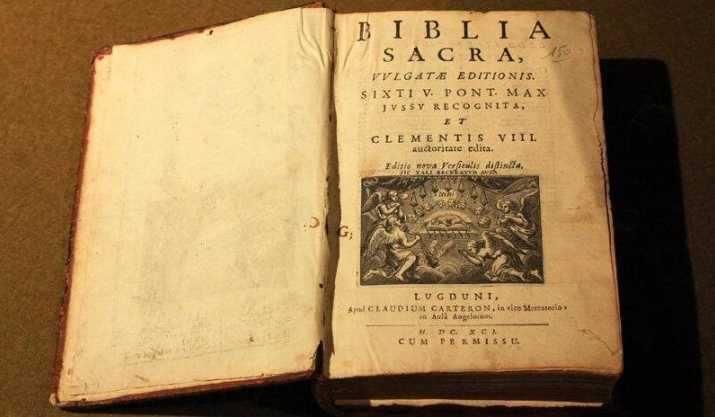The History of Great Translations That Changed the World

At first glance, translation seems like a simple necessity: a way to understand someone speaking another language. But if we look deeper, it becomes clear that some translations didn’t just cross linguistic barriers—they shaped entire civilizations. The Bible, works of ancient philosophers, groundbreaking scientific discoveries—all of these reached new cultures thanks to the persistent efforts of translators. Understanding this history allows us to appreciate the true role of professional translation and the challenges that translators of the past had to overcome.
Translating the Bible: The Book That United Continents
One of the most famous examples is the translation of the Bible. In the 4th century, Jerome of Stridon produced the Latin “Vulgate,” which became the foundation of European Christian culture for centuries. His work required not only linguistic mastery but also incredible precision. Even the slightest mistake could change the meaning of entire doctrines.
Later, translations of the Bible into national languages became powerful social and political tools. Martin Luther’s translation into German not only gave ordinary people access to the sacred texts but also shaped the modern German literary language. Through his work, entire social layers gained access to knowledge previously reserved for theologians. This was a vivid example of how professional translation and localization of ideas can transform society.
The challenges in these cases were more than just linguistic. Translators had to navigate cultural barriers and religious disputes. Every word choice could spark debates—or even accusations of heresy.
Ancient Greek Philosophy and Its New Breath of Life
Without translations of ancient Greek philosophers, medieval Europe could hardly have developed its own intellectual and scientific tradition. The works of Aristotle, Plato, Galen, and other thinkers reached the Latin West largely through Arabic translations. Jewish and Muslim scholars first rendered these texts into Arabic, and later translators in cities like Toledo carried them into Latin, creating a treasure trove of knowledge.
An intriguing fact: before the translations of Aristotle’s works, European universities lacked a systematic philosophical framework. Once translations appeared, Scholastics such as Thomas Aquinas were able to construct entire schools of thought. This is a striking example of how translation serves as the bedrock for new traditions and disciplines.
Scientific Works and the Birth of a New Worldview
Another key area is the translation of scientific works. In the 17th century, translations of Galileo, Newton, and Copernicus enabled discoveries to spread beyond their countries of origin. For example, Newton’s groundbreaking texts on mechanics were translated into French almost immediately after publication, making revolutionary ideas in physics accessible across Europe.
By the 20th century, translations of scientific research directly influenced technical progress. Nuclear physics, medicine, computer science—all became global precisely because translators ensured concepts and terminology were accurately understood worldwide. Unsurprisingly, scientific translation is a domain where precision and subject knowledge are critical.
The Challenges of Translation Through the Ages
If we compare biblical translations with scientific ones, we see common ground: translators were not just transmitting words, but conveying meaning, depth, and nuance. The essential challenges have remained the same:
- Choosing exact equivalents when no direct word exists in the target language.
- Creating and managing new terminology.
- Accounting for cultural and historical context.
- Bearing responsibility for future generations, who will treat a translation as their primary “original.”
For instance, the Greek word “logos” carried shades of meaning from “word” to “reason” or even “cosmic law.” How can a translator preserve both the richness of the term and clarity for readers in a new culture? This is a perfect example of how professional translation becomes an art of choice.
Translators as the Invisible Authors of History
Behind every great translation stands a remarkable individual. Jerome, Luther, Al-Farabi, William Tyndale—they were not just translators but thinkers in their own right. Their work made it clear that a translator is not merely a shadow of the author but a cultural mediator. Entire futures of disciplines, even nations, depended on their careful and courageous decisions.
Nowadays translators deal with contracts, marketing materials, and technical documentation. Yet the mission has not changed: to connect worlds and make knowledge accessible. That is why the demand for high-quality, professional translation remains as strong as ever.
What We Can Learn from This History
These historical examples remind us that translation is not secondary—it is a driving force shaping culture, science, and language itself. Without translation, Europe would not have had universities in the form we know them, the Reformation would not have spread, and international scientific exchange would remain impossible.
Today’s translators face new challenges: the localization of digital products, the birth of tech terminology, and the sensitive rendering of legal or medical texts. But the past inspires us—it shows that an accurate translation can indeed change the course of history.
Conclusion
The history of great translations is, in fact, the history of bridges that transported knowledge and ideas across civilizations. For professionals, it is both a point of pride and a reminder of responsibility. Every translator—whether deciphering ancient manuscripts or localizing modern software—carries on a tradition thousands of years old.
A practical takeaway: when you are dealing with important content—be it a scientific report, a business contract, or a legal document—entrust it to professionals. The accuracy and responsibility of the translator determine whether your ideas will be understood correctly and accepted successfully. And who knows—perhaps your own project could one day join the ranks of translations that changed the world.

